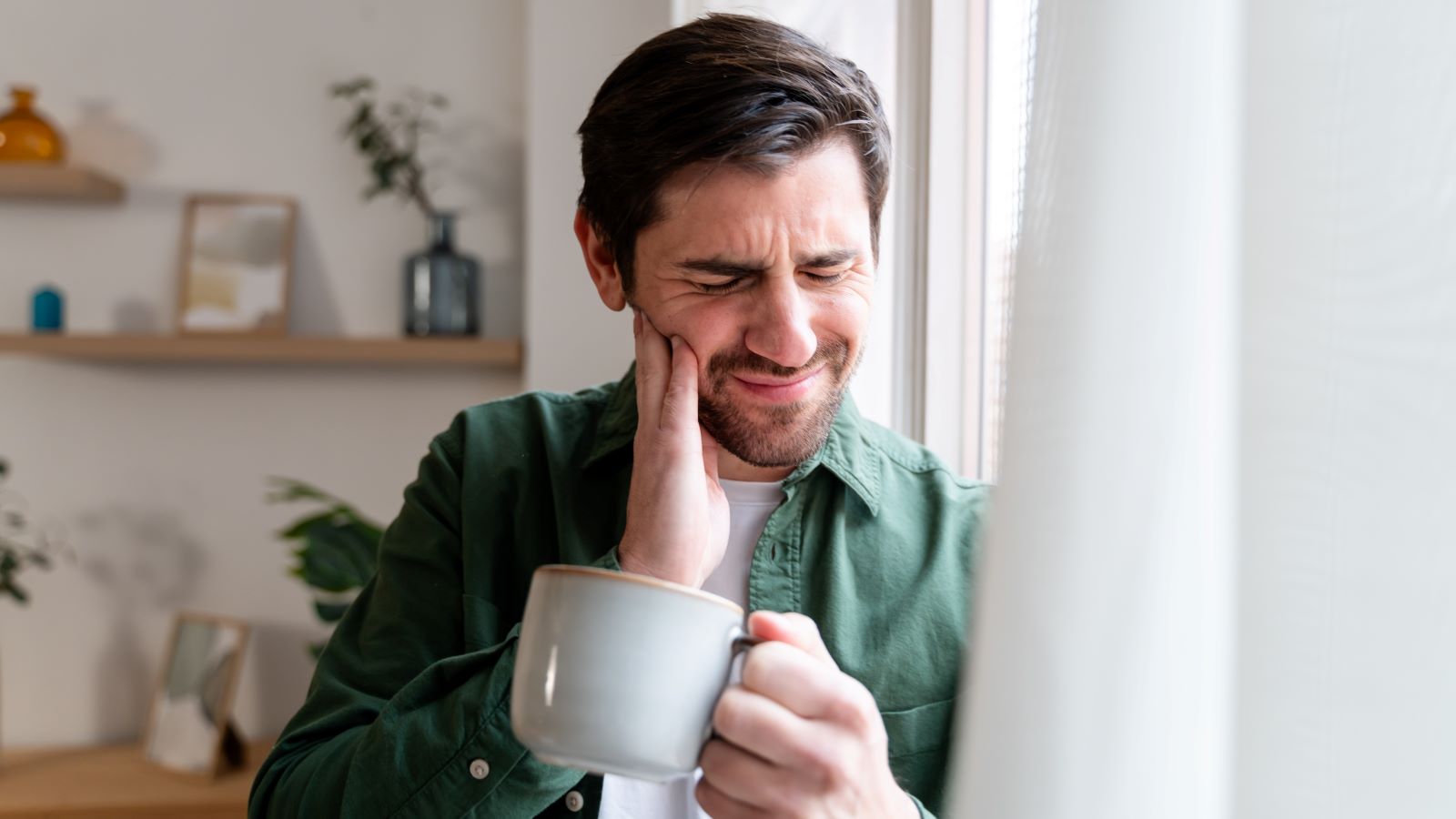<< Back
5 Reasons You Keep Getting Canker Sores

September 30, 2025
Canker sores may be small, but they can make everyday things — like sipping coffee, eating lunch, or brushing your teeth — surprisingly painful.
And while most clear up on their own, understanding what triggers them can help you avoid the discomfort and cut down on future flare-ups.
We asked Syed Hussain, MD, medical director at Hartford HealthCare Urgent Care
aboutwhat causes canker sores
What is a canker sore?
Canker sores are small, shallow ulcers that form inside your mouth, usually in locations like your inner cheek, tongue or gums. They usually look like round or oval spots with a white or yellow center, and a red border.
They’re not the same as cold sores, which can be confusing.
“Cold sores are contagious, typically come with fever or cold-like symptoms, and appear as painful blisters on the upper lip,” says Dr. Hussain.
Most canker sores clear up within a week or two, and they’re usually not contagious. But knowing what sets them off, and how to ease the pain, can make a big difference.
1. Stress and fatigue.
Stress doesn’t just wear on your mind — it affects your body too. And when your immune system is weakened, it’s less able to keep your mouth tissue healthy.
“When you’re run down, you’re more prone to infections — and that includes the soft tissue in your mouth,” Dr. Hussain explains.
If you notice a canker sore after a tough week, try making rest and stress relief a priority. Even small changes like getting to bed 30 minutes earlier or practicing deep breathing can help.
> Related: Stress or Anxiety: How to Tell the Difference — and What to Do About It
2. Minor injuries inside the mouth.
Sometimes, a canker sore is the result of a minor mouth injury.
Accidentally biting your cheek, or irritation from braces or dentures, or even brushing your teeth too aggressively are all possible reasons for a canker sore.
Small steps like switching to a soft-bristled tooth brush, using orthodontic wax on braces or just chewing slower can help prevent these injuries from happening.
3. Certain foods.
Canker sores can also be linked to what you eat
Acidic foods like citrus or tomatoes, or spicy ones like hot peppers can irritate the lining of your mouth. For some people, even foods like chocolate or coffee can be enough to cause a nanker sore.
“These foods can be acidic or irritating, and that irritation can sometimes lead to sores,” Dr. Hussain says. If you notice a connection, try cutting back on those triggers.
4. Vitamin and mineral deficiencies.
Your body needs nutrients like B12, folate, iron, and zinc to maintain healthy tissue. If you’re low in any of these, you may be more prone to recurring canker sores.
These deficiencies can happen because of restrictive diets, certain health conditions, or just not getting enough variety in your meals.
If you’re concerned, check in with your provider. They can help with testing or suggest diet adjustments or supplements if needed.
> Related: 2 Supplements You Should Actually Consider Taking
5. Hormonal changes.
Many women notice canker sores right before their period or during pregnancy. Hormonal shifts can change the body’s immune response and make mouth tissue more sensitive.
While you can’t stop hormones from fluctuating, you can take steps to lessen the impact. Good oral hygiene and avoiding known food triggers during these times may reduce flare-ups.
How to treat canker sores at home.
Even though canker sores usually heal on their own, the discomfort can make everyday tasks feel miserable. Luckily, there are are a few simple things you can do at home to ease the sting and help your mouth heal.
- Rinse regularly. A saltwater rinse (½ teaspoon of salt in a cup of warm water) can clean the sore and reduce irritation. You can also try a baking soda rinse (1 teaspoon in ½ cup of warm water) for added relief.
- Use numbing gels. Over-the-counter gels like Orajel or Anbesol can temporarily dull the pain — especially helpful before eating or brushing your teeth.
- Adjust your diet. Stick to soft foods, avoid hot or spicy dishes, and use a straw to make drinking more comfortable while your sore heals.
When to call your doctor.
Most canker sores heal within one to two weeks. But if you have unusually large sores, frequent flare-ups, or sores that don’t heal, it may be time to check in with a provider.
“While it’s rare, persistent mouth sores can signal another health issue,” says Dr. Hussain. “It’s always better to get them checked by your doctor.”